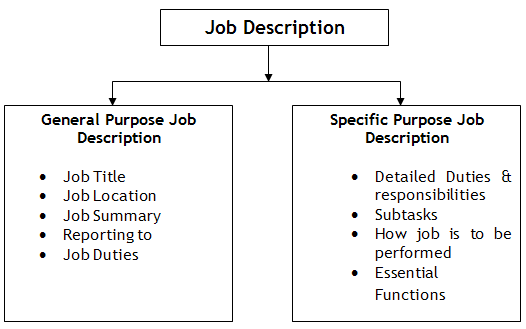Advantages and Disadvantages of Job Analysis
April 3, 2025
 Advantages and Disadvantages of Job Analysis
Advantages and Disadvantages of Job Analysis
Though job analysis plays a vital role in all other human related activities but every process that has human interventions also suffers from some limitations. The process of job analysis also has its own constraints. So, let us discuss the advantages and disadvantages of job analysis process at length. Advantages of Job Analysis Provides First…
 Approaches to Job Design
Approaches to Job Design
Job design is the next step after job analysis that aims at outlining, and organizing tasks and responsibilities associated with a certain job. It integrates job responsibilities and qualifications or skills that are required to perform the same. There are various methods or approaches to do this. The important ones are discussed below Human Approach…
 Benefits of Job Rotation
Benefits of Job Rotation
Job rotation is considered as an effective tool for successful implementation of HR strategy. It is about settling employees at the right place where they can deliver the maximum results. In today’s highly competitive world, this can be proved as the best strategy to find the immediate replacement of a high-worth employee from within the…
Job description is all about collecting and recording basic job-related data that includes job title, job location, job summary, job duties, reporting information, working conditions, tools, machines and equipments to be used and hazards and risks involved in it. A job description may or may not have specific purpose. It depends on what HR managers want to determine and what is the objective of conducting the process of job analysis.
Job Description is a summary of job analysis findings that helps managers determine what an employee is supposed to do when onboard. The purpose of job description depends on the level of details the job findings include. Job description carried for general purpose typically involves job identification (title, designation, location) and a statement of duties and functions of a prospective or existing employee. A specifically carried job description includes detailed information about the kind of job, how it is supposed to be performed and what is expected to be delivered. Let’s discuss the general and specific purpose of conducting a job description process.

General purpose job descriptions are used by organizations to find the very basic information about a particular job opening. Though data includes worker’s duties but does not contain sub tasks, performance standards and basis for evaluating jobs and establishing right compensation packages.
The main benefit of general purpose job description is that it does not consume much time and quickly provides basic information to managers. It does not require much human efforts and is very easy and convenient to carry out. Additionally, a job analyst does not have to conduct deep research to gather the required details.
The main disadvantage of general purpose job description is that it does not provide managers with full-fledged information about job context and sub tasks. Sometimes, a manager may fail to extract correct information from such small amount of data.
Specific purpose job description includes detailed information about job responsibilities of an employee. It also covers sub tasks, essential functions and detailed job duties. It involves huge amount of details such as what an employee needs to do, how it is to be done and what are the performance standards, etc.
The main benefit of specific purpose job description is that it offers ample information to evaluate job performance and determine training needs of employees. It serves as a basis for all other HR processes including recruitment and selection, performance appraisal, compensation decision and many more.
Though it assists managers in decision making process but it has its own limitations. The process, however, may take very long and consume lots of human efforts. Since, it involves collecting detailed information; the biased nature of job analyst can cause severe problems. The data collected may not be 100 percent genuine.
Therefore, it can be said that information collected during job analysis defines the purpose of job description. If data collected is extremely basic, it will serve only the general purpose and therefore, can not be used for making management decisions. On the other hand, detailed data serves the specific purpose and can be easily used while making important decisions.
Your email address will not be published. Required fields are marked *